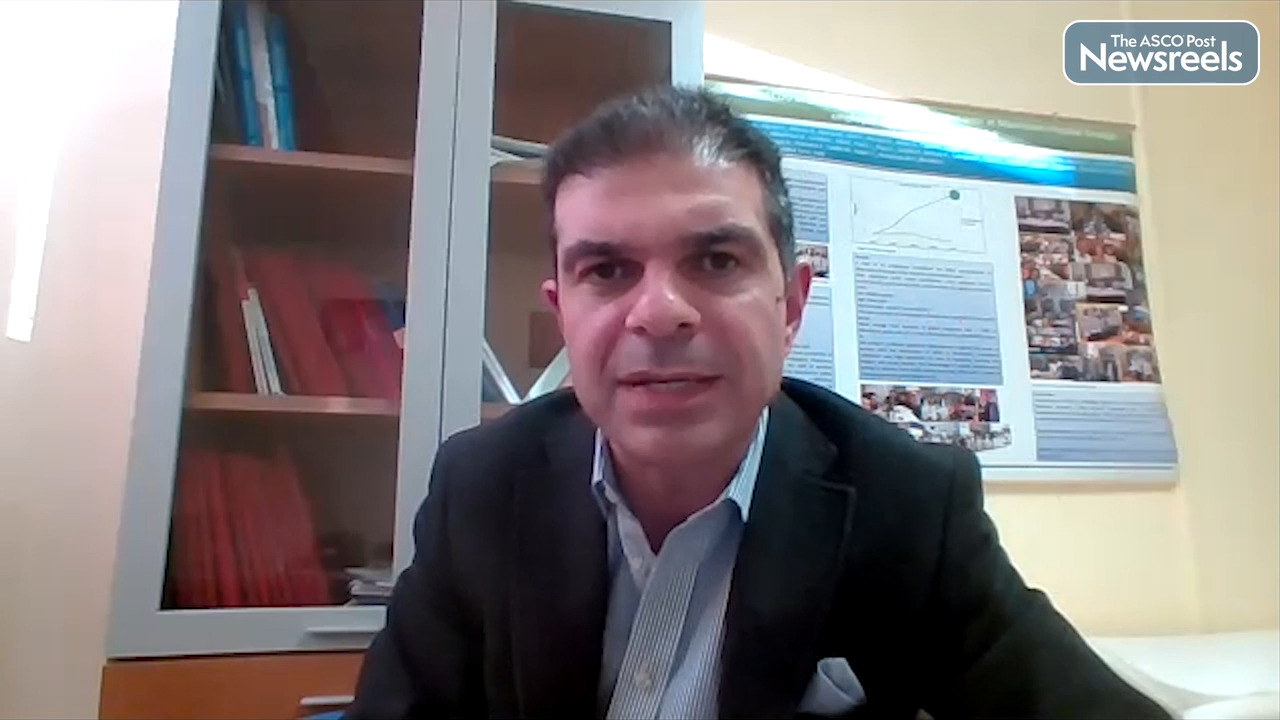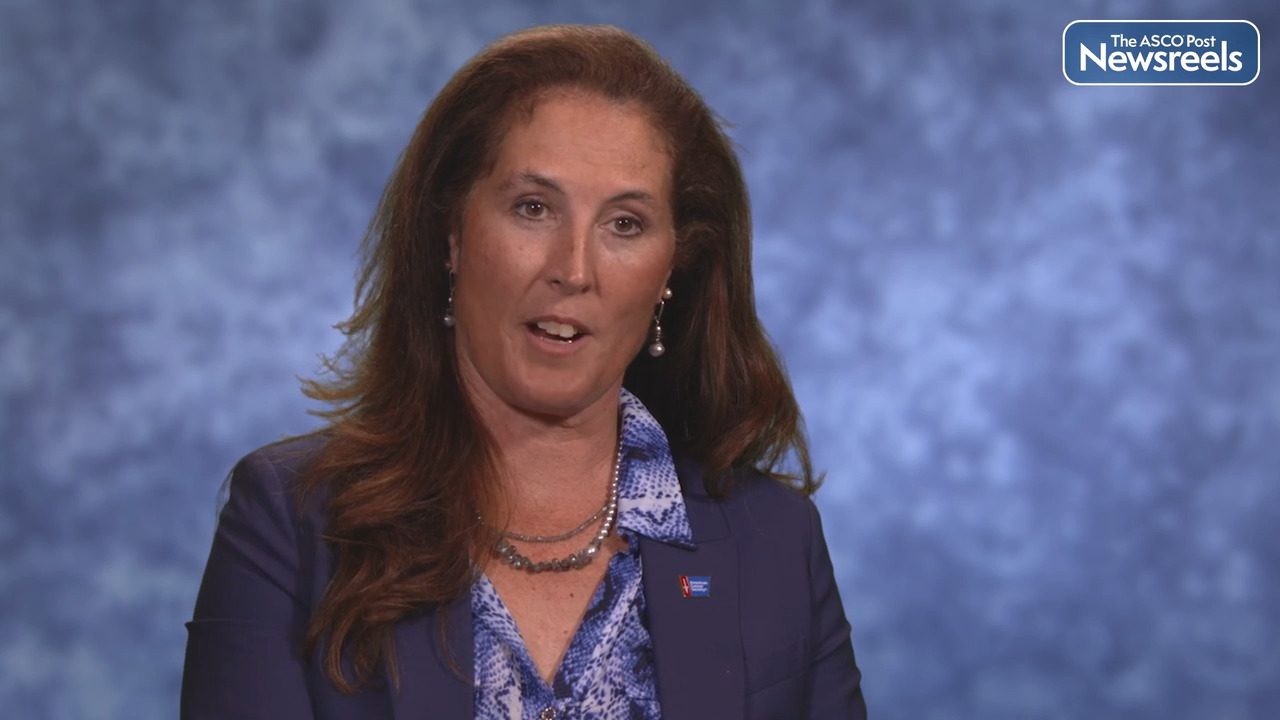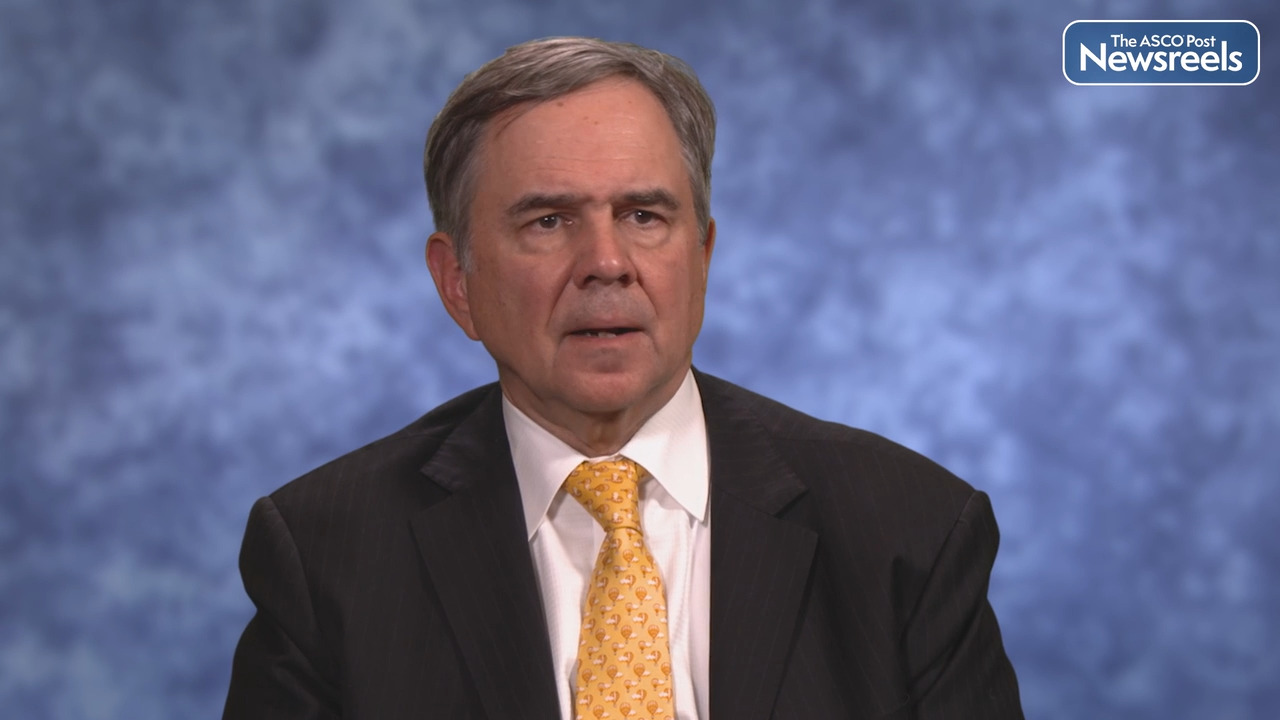Mortality and Perioperative Outcomes With Open vs Robot-Assisted Radical Cystectomy for Bladder Cancer
In a Swedish population-based cohort study reported in JAMA Network Open, Mortezavi et al found that robot-assisted radical cystectomy with intracorporeal urinary diversion was associated with reduced all-cause mortality, reduced high-grade complications, and improved perioperative outcomes vs open ...
AI May Assist Physicians in Better Assessing the Effectiveness of Bladder Cancer Treatment
In a small multi-institutional study, an artificial intelligence (AI)-based system improved providers’ assessments of whether patients with bladder cancer had complete response to chemotherapy before a radical cystectomy. These findings were published by Sun et al in Tomography. Yet the researchers ...
Addition of Nintedanib to Neoadjuvant Gemcitabine/Cisplatin in Locally Advanced Muscle-Invasive Bladder Cancer
In the UK phase II NEOBLADE trial reported in The Lancet Oncology, Hussain et al found that the addition of nintedanib to neoadjuvant gemcitabine/cisplatin did not improve pathologic complete response rate in patients with locally advanced muscle-invasive bladder cancer. In the double-blind...
Thomas W. Flaig, MD, on Bladder Cancer: New Treatment Options
Thomas W. Flaig, MD, of the University of Colorado Cancer Center, discusses the rapidly changing treatment landscape for patients with bladder cancer, including PD-1 and PD-L1 inhibitors now approved for urothelial carcinoma; a category 1 indication for pembrolizumab in metastatic disease, post-platinum treatment and for non–muscle-invasive bladder cancer; enfortumab vedotin-ejfv for subsequent-line use; and erdafitinib for those with select FGFR mutations.
Expert Point of View: Guru P. Sonpavde, MD
Guru P. Sonpavde, MD, Director of the Bladder Cancer Program at Dana-Farber Cancer Institute, Boston, said the therapeutic landscape of urothelial cancer has been altered by PD-L1 inhibitors and antibody-drug conjugates. “The rationale for Cohort 3 was based on high response rates seen with a...
Second-Line Combination Study in Urothelial Cancer
The combination of the antibody-drug conjugate sacituzumab govitecan-hziy and the immune checkpoint inhibitor pembrolizumab yielded antitumor activity as second-line therapy in patients with platinum-refractory, checkpoint inhibitor–naive, metastatic urothelial cancer, according to the results of...
Trials of PARP Inhibitors in Urothelial Cancer: More Questions Than Answers?
Two studies presented at the 2022 ASCO Genitourinary Cancers Symposium explored the role of poly (ADP-ribose) polymerase (PARP) inhibitors in urothelial cancer: ATLANTIS and BAYOU.1,2 Results suggest that PARP inhibitors may be useful in certain genetic subgroups and perhaps in combination with...
Study Evaluates Response-Based Immunotherapy Strategy in Patients With Advanced Urothelial Carcinoma
In a phase II study (TITAN-TCC) reported in the Journal of Clinical Oncology, Grimm et al found that a nivolumab/ipilimumab boost in patients with advanced urothelial cancer who did not respond to nivolumab monotherapy alone increased objective response rates, with the benefit being greatest in...
Neoadjuvant Enfortumab Vedotin-ejfv Shows Activity in Muscle-Invasive Bladder Cancer
Neoadjuvant treatment with the antibody-drug conjugate enfortumab vedotin-ejfv achieved notable antitumor activity in patients with muscle-invasive bladder cancer who are ineligible for treatment with cisplatin, according to preliminary results for cohort H of the EV-103 trial reported at the 2022...
Perioperative Dose-Dense MVAC vs Gemcitabine/Cisplatin in Nonmetastatic Muscle-Invasive Bladder Cancer
As reported in the Journal of Clinical Oncology by Pfister et al, the French phase III GETUG-AFU V05 VESPER trial showed a nonsignificant improvement in 3-year progression-free survival with dose-dense methotrexate, vinblastine, doxorubicin, and cisplatin (dd- MVAC) vs gemcitabine/cisplatin given...
Genitourinary Oncology 2021–2022 Almanac
The past year has witnessed tremendous advances in genitourinary oncology. I am pleased to review these findings in this year’s Genitourinary Oncology Almanac from The ASCO Post. I hope that you will find this roadmap helpful in highlighting a selection of these exciting developments. Checkpoint...
Neoadjuvant Enfortumab Vedotin-ejfv Shows Activity in Muscle-Invasive Bladder Cancer
Neoadjuvant treatment with the antibody-drug conjugate enfortumab vedotin-ejfv achieved notable antitumor activity in patients with muscle-invasive bladder cancer who are ineligible for treatment with cisplatin, according to preliminary results for cohort H of the EV-103 trial reported at the 2022...
Neoadjuvant dd-MVAC Improves Local Control and Progression-Free Survival in Patients With Muscle-Invasive Bladder Cancer
The VESPER phase III trial answers some key questions regarding the optimal management of muscle-invasive bladder cancer. The study found that the neoadjuvant regimen of dose-dense methotrexate, vinblastine, doxorubicin, and cisplatin (dd-MVAC) was superior to standard gemcitabine/cisplatin in...
Adjuvant Nivolumab Improves Disease-Free Survival in High-Risk Muscle-Invasive Urothelial Carcinoma
As reported inThe New England Journal of Medicine by Dean F. Bajorin, MD, of the Department of Medicine, Memorial Sloan Kettering Cancer Center, and colleagues, an interim analysis of the phase III CheckMate 274 trial has shown improved disease-free survival with adjuvant nivolumab vs placebo...
EV-301 Trial: Enfortumab Vedotin-ejfv Improves Overall Survival vs Chemotherapy in Previously Treated Advanced Urothelial Carcinoma
As reported in The New England Journal of Medicine by Thomas Powles, MD, of Barts Cancer Centre, Queen Mary University of London, and colleagues, a prespecified interim analysis of the phase III EV-301 trial has shown improved overall survival with the antibody-drug conjugate enfortumab...
Sacituzumab Govitecan-hziy in Urothelial Carcinoma Progressing After Platinum-Based Chemotherapy and Checkpoint Inhibitor Therapy
In a cohort of the phase II TROPHY-U-01 trial reported in the Journal of Clinical Oncology, Scott T. Tagawa, MD, MS, of Weill Cornell Medicine, New York, and colleagues, found that the antibody-drug conjugate sacituzumab govitecan-hziy produced durable responses in patients with metastatic...
Sumanta K. Pal, MD, on Advances in Genitourinary Cancer Treatment: Expert Perspective
Sumanta K. Pal, MD, of City of Hope National Medical Center, discusses some key research developments in kidney cancer, including data on nivolumab and ipilimumab with or without CBM588 in metastatic renal cell carcinoma; intestinal microbiome associated with the development of grade 3 or 4 adverse events in patients with metastatic disease who have been treated with nivolumab plus ipilimumab and probiotic support; the link between TERT promoter mutations and clinical outcome with immune checkpoint inhibitor therapy for advanced urothelial cancer; mutations in the androgen receptor gene in patients with prostate cancer receiving novel androgen deprivation treatments; and findings on waning antibody titers in patients who have received COVID-19 vaccinations (Roundup of Abstracts 371, 561, 374, Posters 38 and 48).
Laura Bukavina, MD, MPH, Wins ASCO Genitourinary Conquer Cancer Merit Award for Microbiome Research in Bladder Cancer
Laura Bukavina, MD, MPH, a Urologic oncology fellow at Fox Chase Cancer Center, has been awarded the ASCO Genitourinary Conquer Cancer Merit Award. She presented the winning abstract, which characterizes the gut microbiome of patients with bladder cancer, at the 2022 ASCO Genitourinary (GU) Cancers ...
Petros Grivas, MD, PhD, on Urothelial Cancer: New Data on Sacituzumab Govitecan-hziy and Pembrolizumab
Petros Grivas, MD, PhD, of the University of Washington and Fred Hutchinson Cancer Research Center, discusses results from Cohort 3 of the TROPHY-U-01 study, which assessed sacituzumab govitecan-hziy in combination with pembrolizumab in patients with metastatic urothelial cancer who experienced disease progression after platinum-based regimens (Abstract 434).
Massimo Di Maio, MD, on Urothelial Cancer: Data on Niraparib and Best Supportive Care as Maintenance Therapy
Massimo Di Maio, MD, of the University of Turin, discusses the Meet-URO12 study, which showed that maintenance niraparib plus best supportive care (BSC) did not prolong progression-free survival, compared with BSC alone, among patients with urothelial cancer that did not progress after first-line platinum-based chemotherapy.
Jonathan E. Rosenberg, MD, on Urothelial Cancer: New Conclusions About Durvalumab Plus Olaparib
Jonathan E. Rosenberg, MD, of Memorial Sloan Kettering Cancer Center, discusses phase II findings from the BAYOU trial, which studied durvalumab in combination with olaparib for first-line treatment of platinum-ineligible patients with unresectable, stage IV urothelial carcinoma. Because secondary analyses indicated a potential progression-free survival benefit with this combination, there may be a role for PARP inhibitors in the treatment of advanced disease with homologous recombination repair mutation (Abstract 437).
Karen E. Knudsen, PhD, MBA, on Addressing Disparities in Genitourinary Cancers
Karen E. Knudsen, PhD, MBA, Chief Executive Officer of the American Cancer Society, discusses ways to address the inequities in genitourinary screening, treatment, and outcomes. Her suggestions focus on increasing awareness of screening, identifying risk factors, the dramatic rise in incidence among Hispanic individuals, and the basis for increased mortality in Black men.
Wesley Yip, MD, on Urothelial Carcinoma: New Data on Neoadjuvant Gemcitabine and Cisplatin
Wesley Yip, MD, of Memorial Sloan Kettering Cancer Center, discusses phase II results on neoadjuvant gemcitabine and cisplatin for high-grade upper tract urothelial carcinoma, which was well tolerated and demonstrated a favorable pathologic response rate. Dr. Yip notes that this treatment, given prior to nephroureterectomy, did not significantly delay surgery or increase perioperative complication rates.
Simon J. Crabb, PhD, MBBS, on Urothelial Carcinoma: Switch Maintenance Therapy With Rucaparib Following Chemotherapy
Simon J. Crabb, PhD, MBBS, of the Southampton Experimental Cancer Medicine Centre, discusses data from the ATLANTIS trial, in which the authors hypothesized that switch maintenance therapy with the PARP inhibitor rucaparib, in patients who have derived clinical benefit from first-line chemotherapy, may improve outcomes for those with metastatic urothelial carcinoma that harbored a composite biomarker for DNA repair deficiency (Abstract 436).
Minority Enrollment in U.S. Phase II and III Trials in Genitourinary Cancers
In a study reported in the Journal of Clinical Oncology, Owens-Walton et al found that minority populations are underrepresented in phase II and III trials targeting prostate, kidney, and bladder cancers taking place in the United States. Study Details In the analysis, the ClinicalTrials.gov...
Daniel P. Petrylak, MD, on Bladder Cancer: Study EV-103 Cohort H Findings on Enfortumab Vedotin-ejfv
Daniel P. Petrylak, MD, of Yale Cancer Center, discusses new data on the antitumor activity of neoadjuvant treatment with enfortumab vedotin-ejfv monotherapy in patients with muscle-invasive bladder cancer who are not eligible for cisplatin.
Study Examines Predictive Biomarker for Bladder Cancer Survival
Long-term survival data from the first prospective, randomized biomarker validation trial in patients with muscle-invasive bladder cancer being treated with cisplatin-based chemotherapy before surgery are being reported at the 2022 ASCO Genitourinary Cancers Symposium by Thomas W. Flaig, MD, and...
Neoadjuvant Enfortumab Vedotin-ejfv in Cisplatin-Ineligible Patients With Muscle-Invasive Bladder Cancer
The antibody-drug conjugate enfortumab vedotin-ejfv is effective in patients with muscle-invasive bladder cancer who are not eligible for cisplatin chemotherapy, according to data from cohort H of the phase IB/II EV-103 clinical trial being presented at the 2022 ASCO Genitourinary Cancers Symposium ...
Neoadjuvant Atezolizumab Plus Gemcitabine and Cisplatin in Muscle-Invasive Bladder Cancer
In a phase II trial reported in the Journal of Clinical Oncology, Funt et al found that the combination of neoadjuvant atezolizumab with gemcitabine and cisplatin resulted in a high rate of tumor downstaging to < pT2N0 in patients with muscle-invasive bladder cancer. Study Details The U.S....
Erdafitinib for Patients With Advanced Urothelial Carcinoma and FGFR Alterations
As reported in The Lancet Oncology by Arlene O. Siefker-Radtke, MD, and colleagues, the final analysis of the phase II BLC2001 trial has shown maintained activity of the pan-fibroblast growth factor receptor (FGFR) tyrosine kinase inhibitor erdafitinib in patients with locally advanced unresectable ...
Neoadjuvant dd-MVAC Improves Local Control and Progression-Free Survival in Patients With Muscle-Invasive Bladder Cancer
The VESPER phase III trial answers some key questions regarding the optimal management of muscle-invasive bladder cancer. The study found that the neoadjuvant regimen of dose-dense methotrexate, vinblastine, doxorubicin, and cisplatin (dd-MVAC) was superior to standard gemcitabine/cisplatin in...
Thomas Powles, MD, PhD, on Urothelial Carcinoma: Erdafitinib, Cetrelimab, and FGFR Alterations
Thomas Powles, MD, PhD, of Queen Mary University of London, discusses phase II results from the NORSE study, which showed that the kinase inhibitor erdafitinib plus the monoclonal antibody cetrelimab produced meaningful responses in cisplatin-ineligible patients with first-line metastatic or locally advanced urothelial carcinoma and fibroblast growth factor receptor (FGFR) alterations (Abstract LBA27).
Nivolumab for Adjuvant Treatment of Urothelial Carcinoma
On August 19, 2021, the PD-1 inhibitor nivolumab was approved for adjuvant treatment of patients with urothelial carcinoma who are at high risk of recurrence after undergoing radical resection.1 This is the first approval by the U.S. Food and Drug Administration for adjuvant treatment of patients...
dd-MVAC vs Gemcitabine/Cisplatin for Muscle-Invasive Bladder Cancer
The randomized phase III controlled GETUG/AFU VESPER V05 trial was designed to compare the efficacy of two perioperative treatment regimens—gemcitabine/cisplatin or dose-dense methotrexate, vinblastine, doxorubicin, and cisplatin (dd-MVAC)—in patients with muscle-invasive bladder cancer. The...
Radical Cystectomy: Early-Stage Micropapillary Bladder Cancer Outcomes Similar to Late-Stage Conventional Urothelial Carcinoma
A study presented by Kevin Ginsburg, MD, and colleagues at the American Urological Association 2021 Annual Meeting has found that among patients treated with radical cystectomy, those with cT1 micropapillary bladder cancer had similar or worse oncologic outcomes compared with patients with cT2...
Enfortumab Vedotin-ejfv in Urothelial Cancer
On July 9, 2021, enfortumab vedotin-ejfv, an antibody-drug conjugate targeting nectin-4, was granted regular approval. The agent is indicated for the treatment of adults with locally advanced or metastatic urothelial cancer who have received a PD-1 or PD-L1 inhibitor and platinum chemotherapy or...
Neoadjuvant Gemcitabine and Split-Dose Cisplatin Plus Pembrolizumab for Muscle-Invasive Bladder Cancer
In a phase II study reported in the Journal of Clinical Oncology, Tracy L. Rose, MD, MPH, and colleagues found that neoadjuvant therapy with pembrolizumab, gemcitabine, and primarily split-dose cisplatin resulted in pathologic downstaging (< pT2N0) in more than half of patients undergoing...
FDA Revises Label for Pembrolizumab in Patients With Advanced Urothelial Carcinoma
On August 31, the U.S. Food and Drug Administration (FDA) revised the label for the anti–PD-1 therapy pembrolizumab for its indication in first-line advanced urothelial carcinoma. The FDA converted the indication from an accelerated approval to a full approval. In addition, as part of the label...
Addition of ATR Inhibitor Berzosertib to Cisplatin/Gemcitabine in Metastatic Urothelial Carcinoma
In a phase II trial reported in JAMA Oncology, Sumanta K. Pal, MD, FASCO, and colleagues found that the addition of the ATR inhibitor berzosertib to cisplatin/gemcitabine provided no benefit in patients with metastatic urothelial carcinoma. The triplet did not prolong progression-free survival, and ...
Sacituzumab Govitecan-hziy for Locally Advanced or Metastatic Urothelial Cancer
On April 13, 2021, sacituzumab govitecan-hziy was granted accelerated approval to treat patients with locally advanced or metastatic urothelial cancer who had received platinum-containing chemotherapy and either a PD-1 or a PD-L1 inhibitor.1 Supporting Efficacy Data Approval was based on findings...
FDA Approves Nivolumab for Adjuvant Treatment of Urothelial Carcinoma
On August 19, the U.S. Food and Drug Administration (FDA) approved the anti–PD-1 therapy nivolumab (Opdivo) for the adjuvant treatment of patients with urothelial carcinoma who are at high risk of disease recurrence after undergoing radical resection. This is the first FDA approval for adjuvant...
Adjuvant Nivolumab Improves Disease-Free Survival in High-Risk Muscle-Invasive Urothelial Carcinoma
As reported in The New England Journal of Medicine by Dean F. Bajorin, MD, of the Department of Medicine, Memorial Sloan Kettering Cancer Center, and colleagues, an interim analysis of the phase III CheckMate 274 trial has shown improved disease-free survival with adjuvant nivolumab vs placebo...
Is Disease-Free Survival the Best Endpoint for Adjuvant Nivolumab in High-Risk, Muscle-Invasive Urothelial Carcinoma?
The role of adjuvant treatment for invasive, high-grade bladder cancer remains controversial and challenging. Sternberg et al reported a statistically significant progression-free survival benefit from adjuvant combination gemcitabine/cisplatin (GC) or MVAC (methotrexate, vinblastine, doxorubicin, ...
Adjuvant Nivolumab Improves Disease-Free Survival in High-Risk Muscle-Invasive Urothelial Carcinoma
As reported inThe New England Journal of Medicine by Dean F. Bajorin, MD, of the Department of Medicine, Memorial Sloan Kettering Cancer Center, and colleagues, an interim analysis of the phase III CheckMate 274 trial has shown improved disease-free survival with adjuvant nivolumab vs placebo...
Sacituzumab Govitecan-hziy: Welcome Addition to Advanced Urothelial Cancer Treatments, but Time to Figure Out Sequencing and Combinations
The results of Cohort 1 of the phase II trial TROPHY-U-01 (IMMU-132-06; ClinicalTrials.gov identifier NCT03547973), published in the Journal of Clinical Oncology by Tagawa et al and reviewed in this issue of The ASCO Post, led to the recent accelerated U.S. Food and Drug Administration (FDA)...
Sacituzumab Govitecan-hziy in Urothelial Carcinoma Progressing After Platinum-Based Chemotherapy and Checkpoint Inhibitor Therapy
In a cohort of the phase II TROPHY-U-01 trial reported in the Journal of Clinical Oncology, Scott T. Tagawa, MD, MS, of Weill Cornell Medicine, New York, and colleagues, found that the antibody-drug conjugate sacituzumab govitecan-hziy produced durable responses in patients with metastatic...
EV-301 Trial: Enfortumab Vedotin-ejfv Improves Overall Survival vs Chemotherapy in Previously Treated Advanced Urothelial Carcinoma
As reported in The New England Journal of Medicine by Thomas Powles, MD, of Barts Cancer Centre, Queen Mary University of London, and colleagues, a prespecified interim analysis of the phase III EV-301 trial has shown improved overall survival with the antibody-drug conjugate enfortumab...
Enfortumab Vedotin-ejfv Granted Regular Approval in Treatment of Locally Advanced or Metastatic Urothelial Cancer
On July 9, 2021, the U.S. Food and Drug Administration (FDA) approved enfortumab vedotin-ejfv (Padcev), a Nectin-4–directed antibody and microtubule inhibitor conjugate, for adults with locally advanced or metastatic urothelial cancer who have previously received a PD-1 or PD-L1 inhibitor and...
Study Finds Patients With Bladder Cancer and Ureteric Obstruction May Safely Receive Chemotherapy
A study published by Strother et al in BJU International found that patients with muscle-invasive bladder cancer can safely receive cisplatin-based neoadjuvant chemotherapy, even when their tumors are blocking their kidneys. The findings suggest that patients with the most serious type of this...
Peter H. O’Donnell, MD, on Urothelial Cancer: First-Line Pembrolizumab in Cisplatin-Ineligible Patients
Peter H. O’Donnell, MD, of The University of Chicago, discusses response and survival results from the phase II KEYNOTE-052 study, which showed that after up to 5 years of follow-up, pembrolizumab continued to elicit clinically meaningful, durable antitumor activity in cisplatin-ineligible patients with advanced urothelial cancer (Abstract 4508).











